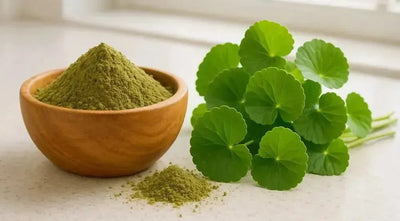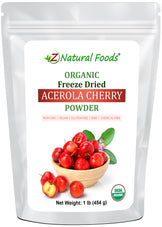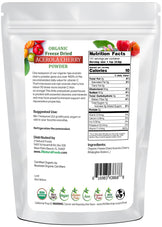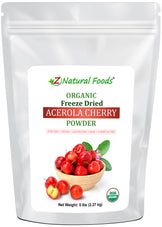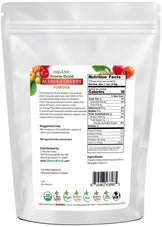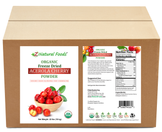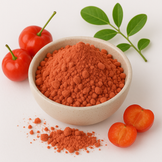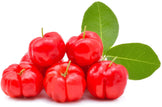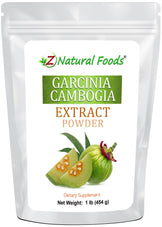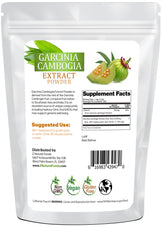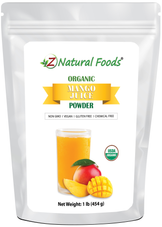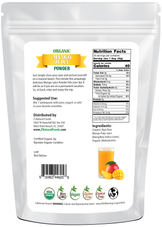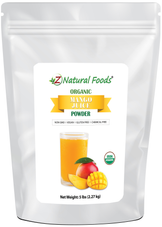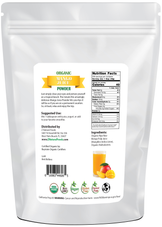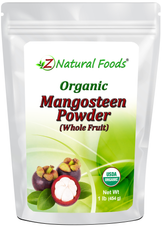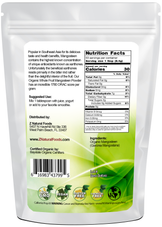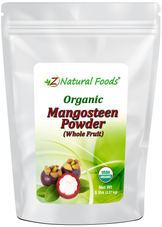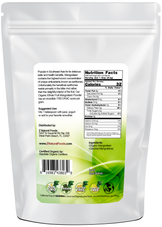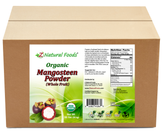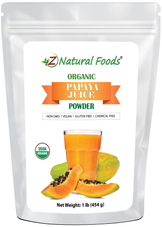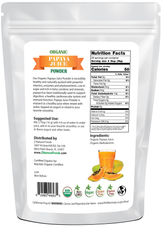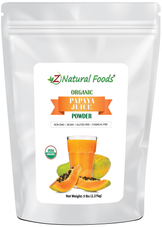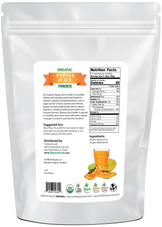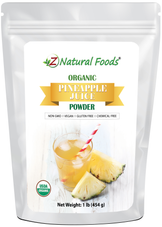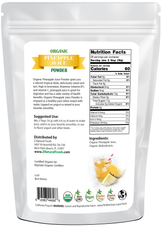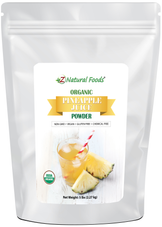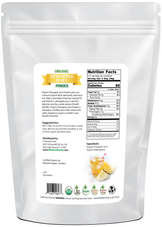Description
Description
If you have ever wondered what African mango extract is good for, you have come to the right place.
In this article, we review a brief history of the plant Irvingia Gabonesis which produces the African mango fruit and the seed (also called dika seed), look at some of its potential benefits, and review two current scientific studies about the African mango seed and its extract.
What is African mango extract good for?
The African mango is one of the African cuisine's most popular and widely used functional foods and has been used for centuries in traditional African dishes. The mango produces a seed (also known as dika seed), a little bigger than an almond, has a sweet, nutty flavor, and is often used as a snack in baking and savory dishes. The seed has many traditional uses and a potent extract is derived from the seeds.
This article will answer the question, “What is African mango extract used for?” In addition, we will discuss the possible supportive qualities of African Mango Seed Extract powder.
Let’s now look deeper into this fruit.
African Mango Seed (a.k.a dika seed) Extract and its uses
The African mango is one of African cuisine's most popular and widely used functional foods.
It has been used for centuries in traditional African dishes and has also been gaining popularity in the West.
The mango fruit produce seeds which are also known as the dika nut seed. It is native to West Africa and is found in several countries, such as Nigeria, Cameroon, Ghana, Benin, and Ivory Coast. The dika nut seed is a little bigger than an almond, has a sweet, nutty flavor, and is often used as a snack in baking and savory dishes. This fantastic fruit produces “bread, butter " and a rare treat known as Gaboon chocolate.
The fruit is often eaten fresh or dried, and the seeds are sometimes used to make medicinal tea. The extract is a source of vitamins, minerals, and other nourishing compounds.
What exactly is African Mango Extract used for?
The western world has put this potent seed in the spotlight regarding its potential ability to affect a wide range of metabolic factors.
When discussing the topic of obesity, we often hear about the relationship between factors that affect weight loss and our metabolism or metabolic rate.
It has been hypothesized that African mango seed may support a healthy body weight by increasing fatty acid breakdown and inhibiting fatty acid synthesis.
Before diving deep into this topic and looking at two scientific studies, it is vital to understand what the term metabolism means and its relationship to weight loss.
Metabolic syndrome is a term used to describe a group of conditions (blood pressure, blood sugar, and lipids) that raise your risk for more severe conditions, which are directly connected to how efficiently your metabolism works.
Western medicine defines metabolism as enzymatic changes that take place in a cell or organism. These changes create energy, and the materials cell need to grow, reproduce and stay healthy. In simple terms, metabolism is the physical and enzymatic processes by which your body changes what you eat and drink into energy by mixing calories and oxygen to create said energy.
Therefore, the more efficiently your metabolism runs and converts your calories into energy, the greater your chance of living a healthy, vibrant life.
Even at rest, the body needs the energy to support a wide range of life-sustaining functions like breathing, sending blood through the body, and balancing hormones. This concept is known as basal metabolic rate(BMR).
While muscle mass is the primary factor, BMR also depends on three other factors. First is body composition and mass because people with muscle burn more calories. The next factor is gender, as men usually have less body fat and more muscle, so they burn more fat. The final factor is age. As people age, they often lose more muscle, thereby burning less fat.
One final point is that while you can’t necessarily control your BMR, you can control how many calories you burn through your level of physical activity. Therefore, it is generally suggested that doing a combination of both aerobic exercise and some form of strength training is where you may get the most bang for your buck.
Metabolism: A Traditional Chinese Medicine (TCM) perspective
Traditional Chinese Medicine (TCM) considers metabolic issues to be potentially caused by two general patterns of disharmony.
- The first pattern is called Damp phlegm. This pattern type of phlegm is derived from either long exposure to a wet environment or overconsumption of cold, raw, or greasy foods. A relationship also correlates between damp phlegm and large soft bellies. This pattern can be chronic or acute, often resulting from prolonged spleen Qi deficiency, whose primary function is to transform and transport fluids. Kidney Qi deficiency is another potential cause because, in TCM, the kidneys control water circulation and body fluid balance. In the end, Spleen and kidney dysfunction lead to phlegm formation.
- The second pattern of dysfunction is Spleen Qi deficiency. This is one of the most common patterns of disharmony caused by an unhealthy diet and emotional stress resulting in a wide range of digestive issues. In TCM, the spleen is responsible for transforming and transporting body fluids, and chronic problems may cause fluid accumulation resulting in the formation of phlegm.
Regardless of your perspective, here are two interesting scientific studies that may help you make better decisions.
Two scientific studies featuring Mango seed extract
A study of 102 individuals was done to evaluate the effects of African Mango Extract on various parameters of metabolic health.
The participants were divided into two groups. They either received two daily servings of African mango seed extract or a placebo within 1 hour of lunch and dinner.
The participants were evaluated at weeks 4, 8, and 10 for changes in a wide range of metabolic parameters (lipids, glucose, CRP, adiponectin, and leptin). The results showed improvement in all parameters for those who used the African mango seed extract twice daily. It was concluded that this specific extract positively impacts body weight and metabolic syndrome parameters.
In 2005, forty individuals (average age 42) participated in a double-blind, randomized study evaluating the effects of African Mango Seed extract on obesity. Twenty-eight participants received African Mango Seed extract three times daily for one month, while the remaining twelve individuals got a placebo on the same schedule.
At the study's conclusion, the extract group's mean body weight was decreased by about five pounds and the placebo group by about 1 pound.
It was also reported that the participants in the extract group had a decrease in all lipid markers, while the placebo group did not manifest any changes.
While a meta-analysis of all the research shows overall positive results for using African mango seed extract to support healthy metabolic parameters (specifically lipids and weight loss), more extensive research may be necessary to define all mechanisms of action clearly.
These preliminary trials show potential supportive benefits for this potent food.
References:
1. (n.d.) UTEP. African Mango, Available (Accessed: January 20, 2023). Available at: https://www.utep.edu/herbal-safety/herbal-facts/herbal%20facts%20sheet/african-mango.html
2. Sun,J.,Lee, B. (2022) Terminalin from African Mango (Irvingia gabonesis) Stimulates Glucose Uptake through Inhibition of Protein Tyrosine Phosphatases. Available at: https://www.ncbi.nlm.nih.gov/pmc/articles/PMC8869479/ (Accessed: January 23, 2022).
3. (n.d.) Bayomi, M. (2008). Available at: https://www.huhs.edu/sites/default/files/files/Weight%20Loss%20-%20African%20Mango.pdf (Accessed: January 23, 2022).

